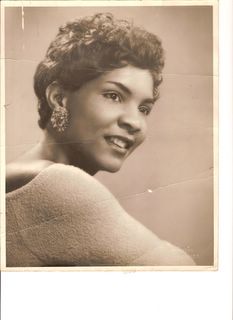
In 1978, Christina Crawford shocked the world by releasing Mommie Dearest, a tell-all book that detailed the beatings she endured at the well-manicured hands of her famous mother, screen legend Joan Crawford.
“She ought not do her mother like that,” my mom said as we watched a news report about the autobiography. I took note – not of Mommy’s lack of sympathy for Christina’s plight – only of her disapproval towards a daughter who exposed her mother’s ugly side – especially after that mother had died.
Back then, at age 9, I intimately related to the perplexing state of living with a woman crazed with rage yet filled with a supreme love that prompted her to preserve my every hand-written report card and softly intone endearments like “sweetheart, lover, doll-boxy.” At 37, I now reside in the completely confusing, all-consuming state of blind devotion felt by any protector who would undoubtedly rip a mangy dog limb from tail that threaten to bite the same defenseless children she takes her own fury out upon.
Throughout my life, maltreatment has always blended with intense affection as inevitably as bitters in the best martinis, so I always took my mom’s furled-knuckled head knocks like a good little girl. The physical manifestation of Mommy’s antagonism climaxed when I traipsed home through one dawn’s early light during college break, bounding happily down my parents’ sidewalk as friends idled at the curb in a car to make sure, ironically, that I got inside safely.
I smiled at my mother’s chocolate Lab-colored face behind our storm door, until I detected vehemence behind her forced grin. The second I stepped inside, she started to pummel me, her clenched hands landing heavily about my head and back. Stooping low, I peeked up to see my best friend staring incredulously at the situation, then take off slowly, pause, and pull away again.
“What was wrong with your mother?” she asked later. I mumbled an incoherent sound, embarrassed to the hilt, and once again took the shame of Mommy’s unresolved flashbacks of Daddy arriving home with the sunrise inside my own being, suffering in the Stockholm Syndrome-like silence of a captive protecting its abuser. I never fought back.
The proverbial “yes girl,” it’s no wonder why I eloped at 22, saying yes to a violent marriage, yoking myself to a man just like Mommy, as pop psychologists claim women often do. That turbulent union failed within three years. When I later married a good guy then buried the past as deep as Mommy’s body – with her heart literally and metaphorically hardened – I thought all was well. But after procreating and coming soul-to-soul with Mommy’s same frustrations – feeling entrapped by motherhood, marital disillusionment, career unfulfillment – my ghosts of the past resurfaced like ugly Night of the Living Dead monsters escaping their graves on floodlight-bright full moon nights.
My wake-up call rang the day I pinched my preschool-aged son so hard, I left a crescent-shaped scar in his flesh. Long after it faded from both his tender skin and my conscious memory, I crouched with my face on the pewter fabric embroidered with grape-tinged leaves covering a pew, sobbing at the chastising voice booming from both the space above my bellybutton yet floating way above the international flags and royal purple beams festooning my sanctuary’s ceiling. How dare you hurt My child!
After that, I tried to be good and behave my way into becoming a Donna Reed-type – but I knew I needed outside help. A motherless daughter, I’d seen the full trajectory of my matriarch’s life; I knew how her sad story ended. And I wanted better for myself. So the time came to break away from my virtual twin and her twisted logic.
Eschewing all misguided edicts to “keep private stuff private,” I joined a Grief Recovery® workshop and sat across from strangers propitiating as Mommy, while I read a letter filled with never-before expressed rage and joy over undeserved inane fussing to aforementioned thrashings. After nearly four decades, I finally forgave my mother and quit my job as co-conspirator in our silent partnership of sick secrets.
I’d like to say I’m perfect, but even after group therapy I still recreated the scene I’d enacted with my mother at that doorway years ago. I’m realizing that it’s a process to learn better behavior. When I feel myself losing it these days, I pound walls and wood doors.
And I no longer stuff everything inside and play nice for the sake of enabling others’ stuffed-down issues. Now I place my irritation squarely on the shoulders of whomever’s at its source – my husband, my sister, my own self…even God.
Continuing to suck up professional and lay counseling from wherever I can get it helps. Though my neighbors can surely attest to my screaming fits, I’m off the road that ends with children who flinch when you try to hug them. Because I know without a doubt that mistreated kids grow up, learn to write, then pen Pulitzer Prize-winning memoirs.
Paula Mooney is a freelancer writer who lives in Akron with her husband and two young children. Write to her at cpmooney@aol.com or visit http://www.paulamooney.blogspot.com/
This essay was originally published in the July 2006 issue of Akron Family and is available for reprints.
Comments